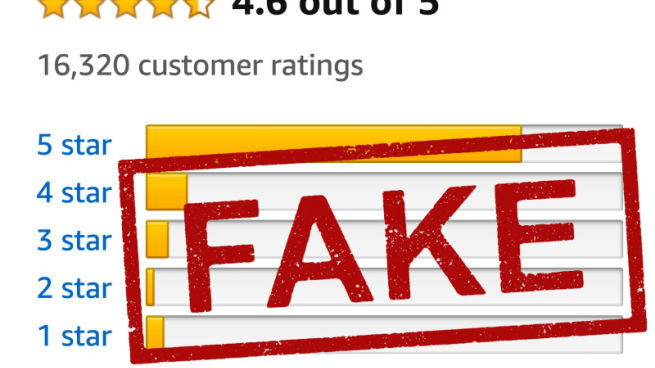Last week we spent time on how to write a great book review. If you missed it, you can read about it here. Today we’re going to talk about something we’d rather not have, and that’s fake book reviews. Here’s why…
If you’re an author, then you know that reviews can make or break your book. A few good reviews can convince people to give your book a chance, but a bunch of bad reviews can discourage people from clicking the “buy now” button. That’s why it’s so important to make sure that the reviews you’re getting are real.
Unfortunately, in today’s world, it’s all too easy for people to leave fake reviews. None of us wants to have bad reviews of our books, but there is such a thing as having too many five-star glowing reviews too. I know that seems counterintuitive, but think about it. Have you ever run across a book that has tons of reviews, and every single one of them has five stars and an absolutely glowing report of its contents? Haven’t you wondered about this? Most of us have, and there is an uneasy feeling about it. How is it possible every single reviewer gives it the highest praise possible? After all, it’s challenging enough to find two people who want to have dinner at the same place, not to mention a lot of strangers all agreeing on a book. When we see all these 5-star reviews, we figure it is mostly friends and family writing them. It’s not that that’s a bad thing, it’s just that others will have a hard time believing it. It can backfire on you. People just don’t trust it.
When I have clients come to me upset about a less-than-stellar review, I remind them it is time to celebrate. It helps keep things real. Having a 3-star review is not necessarily a bad thing.
It’s important to keep an eye on your reviews and monitor this, while keeping an eye out for fakes. This is also good information for review readers who are deciding to buy a book:
1. Is the review verified?
If there is the word “verified” in green letters next to the reviewer’s comment, that means they actually bought the book, and that is a very good thing. Fake reviewers don’t usually part with their own money and therefore did not first purchase the book. Be sure to look for the word, “verified.”
2. Check the reviewer’s history.
If you’re not sure whether a review is real or not, one of the best things you can do is check out the reviewer’s history. How many reviews have they done in the past? What else have they reviewed? If they’ve only reviewed your book and nothing else, or if they’ve left dozens of reviews in a short period of time, or if they’ve only written “terrible” reviews, those are red flags.
3. Look at the content of the review.
When you’re trying to determine whether a review is real or fake, it’s also important to pay attention to the content of the review itself. Does it seem genuine? Is it well-written? Does it offer specific details about what the reviewer liked or didn’t like about the book? Or is it vague and full of empty praise or criticism? A real review will offer specific insights that can help readers determine if your book is for them. A fake review will be much less helpful.
4. See if other reviewers corroborate what this reviewer is saying.
If you’re still not sure whether a particular review is real or fake, see if other reviewers are saying similar things. If multiple reviewers mention the same issue—whether it’s something they loved or something they didn’t like—chances are good that it’s legitimate feedback. But if this reviewer is the only one making a particular point, that should give you pause. It doesn’t mean it’s fake, but it’s just something to consider and be aware of.
5. The review is overly positive or negative.
We touched on this earlier, but it’s worth mentioning again: one of the biggest red flags when it comes to spotting fake book reviews is when the review is either overly positive or overly negative. Few people are completely polarized in one direction or the other. Very few books are truly amazing or absolutely terrible. If you see a review that falls at either extreme of the spectrum, there’s a good reason to question the validity of it.
6. Note the tone of the review.
This ties in with being too glowing—a real review might have criticisms, but even if it’s mostly positive, it will usually be balanced and fair. A fake review, however, will often go overboard in its praise or its criticism.
Bottom Line
You want potential readers to be getting honest feedback about your work—not artificially inflated (or deflated) ratings that don’t give an accurate picture of what your book is really like. This is also good news for when you get a lower review. Keep in mind that rather than feeling bad about it, you can feel good about it. Things are balanced, as they should be. Keep an eye out for the tips listed above next time you’re reading reviews, and you’ll be on your way to weeding out the fakes from the genuine articles. And good luck! Here’s to lots of good, helpful reviews that make others want to buy and read your book.
To your success!
Joanne
P.S. It’s got to be real!
#fakebookreviews
#spotafake
#BookPublicity
#BookMarketing
If you’d like to receive juicy publicity secrets directly on a regular basis, join the Savvy Sunday Community at the bottom of this page.

